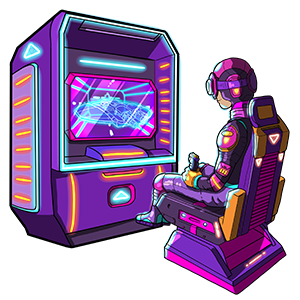Localization Quality Assurance (LQA) is an essential step in the audio localization process meant to guarantee player immersion. While localization involves translating and adapting content for different regions, LQA ensures that these adaptations maintain the original’s quality and functionality. For audio elements, this includes dialogues, sound effects, and ambient sounds.
In this article, we will explore the three main areas where LQA plays a crucial role in audio localization: ensuring accuracy in dialogues and NPC interactions, handling common audio localization issues, and replicating in-game conditions for accurate audio.
3 Key Areas of Focus in Audio Localization Quality Assurance

Ensuring Accuracy in Dialogues and NPC Interactions
Dialogues and NPC (Non-Playable Character) interactions are central to a game’s narrative and player engagement. LQA testers focus on verifying that all character dialogues and NPC interactions are correctly localized. This involves checking the timing, emotion, and context of dialogues to ensure they match the original. For instance, if a character expresses joy, the localized audio should convey the same emotion, maintaining the narrative’s integrity.
Handling Common Audio Localization Challenges
One common issue in audio localization is the presence of unlocalized content or typos. These errors can disrupt the gaming experience and affect immersion. LQA testers meticulously review the audio files to identify such issues. They ensure that all elements, including minor background dialogues, are accurately localized. If any errors are found, they are reported and corrected promptly. For example, a typo in a critical NPC dialogue can change the meaning of a quest, leading to player confusion.

Replicating In-Game Conditions for Accurate Audio
During LQA, testers mimic all necessary conditions to ensure the localized audio triggers correctly in the game environment. This includes simulating gameplay scenarios to test if the audio elements function as intended. For example, in a battle scene, the sounds of weapons clashing and character shouts should be accurately synchronized with the visual actions. Testers also check for issues like audio clipping, incorrect volume levels, or missing sound effects.
The Successful Audio Localization of The Witcher 3
The journey of localizing The Witcher 3 is rich with lessons and insights due to the excellent collaborative effort between developers, translators, and voice actors. From the Leshy-sized translation obstacles faced during the localization process to the innovative solutions implemented to overcome them, the team’s resilience and adaptability were crucial for maintaining the game’s narrative integrity and ensuring an engaging experience for players, especially where riddles appear.
Another fascinating aspect of the localization involved the use of accents and cultural nuances, ensuring that the characters’ voices remained authentic and relatable to the target audiences. To maintain cultural integrity while making the game accessible to a global player base, not only was the voice acting particularly demanding, requiring the tone, emotion, and timing of the original performances to be matched but also the chosen accents themselves were integral in creating a relatable and immersive experience for diverse audiences. This attention to detail highlights the delicate balance between preserving the original essence of the game and adapting it to resonate with players from various cultural backgrounds.
The team also had to implement advanced localization tools and methodologies to streamline the process. A comprehensive approach to LQA was key to the game’s global success, allowing players from different regions to fully enjoy The Witcher 3’s rich world.
The Takeaway
Accurate audio localization is vital for immersive gaming, and LQA plays a pivotal role in achieving this. By ensuring all audio elements are thoroughly tested and correctly implemented, LQA guarantees a seamless and engaging experience for players across different languages. The use of specialized tools and a meticulous testing process focused on replicating in-game conditions make LQA indispensable in the world of video game localization.
